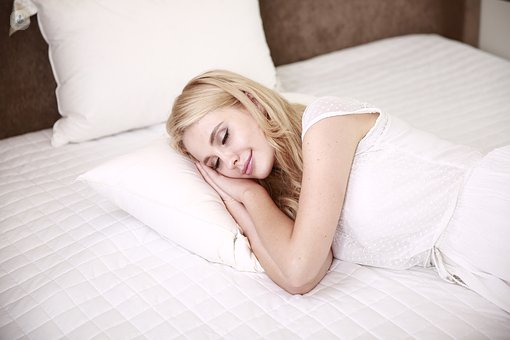5 tips for better sleep
Autore:It can be difficult to get a good night’s sleep with work pressure, stress and a million thoughts running through your head. We interviewed Top Doctor Sue Peacock about a recent talk she gave to find out what we can do to sleep better and wake up refreshed.

Let’s break it down into 5 tips:
S -The science of sleep
Our sleep-wake cycle is regulated by two separate biological mechanisms; sleep-wake homeostasis and circadian rhythm . Sleep-wake homeostasis reminds our body to sleep, it’s like an internal biochemical system that induces an increased desire to sleep, the longer we have been awake. This process puts pressure on us to go to sleep, while the circadian rhythm process tells us when to go to sleep.
The circadian rhythm regulates all of the body’s internal biological processes, our eating patterns and sleeping patterns. It is our internal body clock. It needs to work with sleep-wake homeostasis to create a balanced sleep-wake cycle.
Anything from stimulants such as caffeine late at night, sleeping with the light on, shift work and jet lag can throw these processes out of balance and lead to a bad night’s sleep. Caffeine stimulates the brain to stay awake and alert as does daylight and bright screens. Try to cut out caffeinated drinks late into the evening, avoid using your phone directly before bed and sleep in a dimly lit room to improve your sleep.
L-Letting go
Anxiety is one of the biggest reasons for insomnia. We have so many thoughts racing in our head before bed, a good idea would be to write these thoughts in a journal before you go to sleep, to put them out of your mind and on to paper. This helps the mind to “let go” of things that are causing worry and distress.
E-Environment
Your quality of sleep can be greatly affected by the environment in which you sleep. If your bedroom is untidy and unorganized, this can make it much more difficult to get a good night’s sleep. Your sleeping space should be clean, dimly lit and tidy.
E-Elimination
We can use cognitive behavioural therapy, to recognize and eliminate negative thoughts and emotions that can prevent us from sleeping and replace them with cognitive behavioural techniques to develop good sleeping habits. These techniques can include; practising sleep hygiene, which involves changing lifestyle habits that influence sleep, such as drinking too much alcohol or not getting enough exercise. An experienced psychologist can help guide you toward improved sleep.
P-Personal sleep plan
Doctor Peacock recommends developing a personal sleeping plan, which would be your bedtime routine to teach your body that it’s time to sleep. This routine could be following a meditation, listening to relaxing music or reading a good book to unwind. If you sleep at the same time every night and follow the same routine, your body will get into the habit of falling asleep and you are more likely to sleep better.
If you would like to know more about Doctor Sue Peacock or if you suffer from sleeping difficulties, feel free to visit her Top Doctors profile to get in touch.


